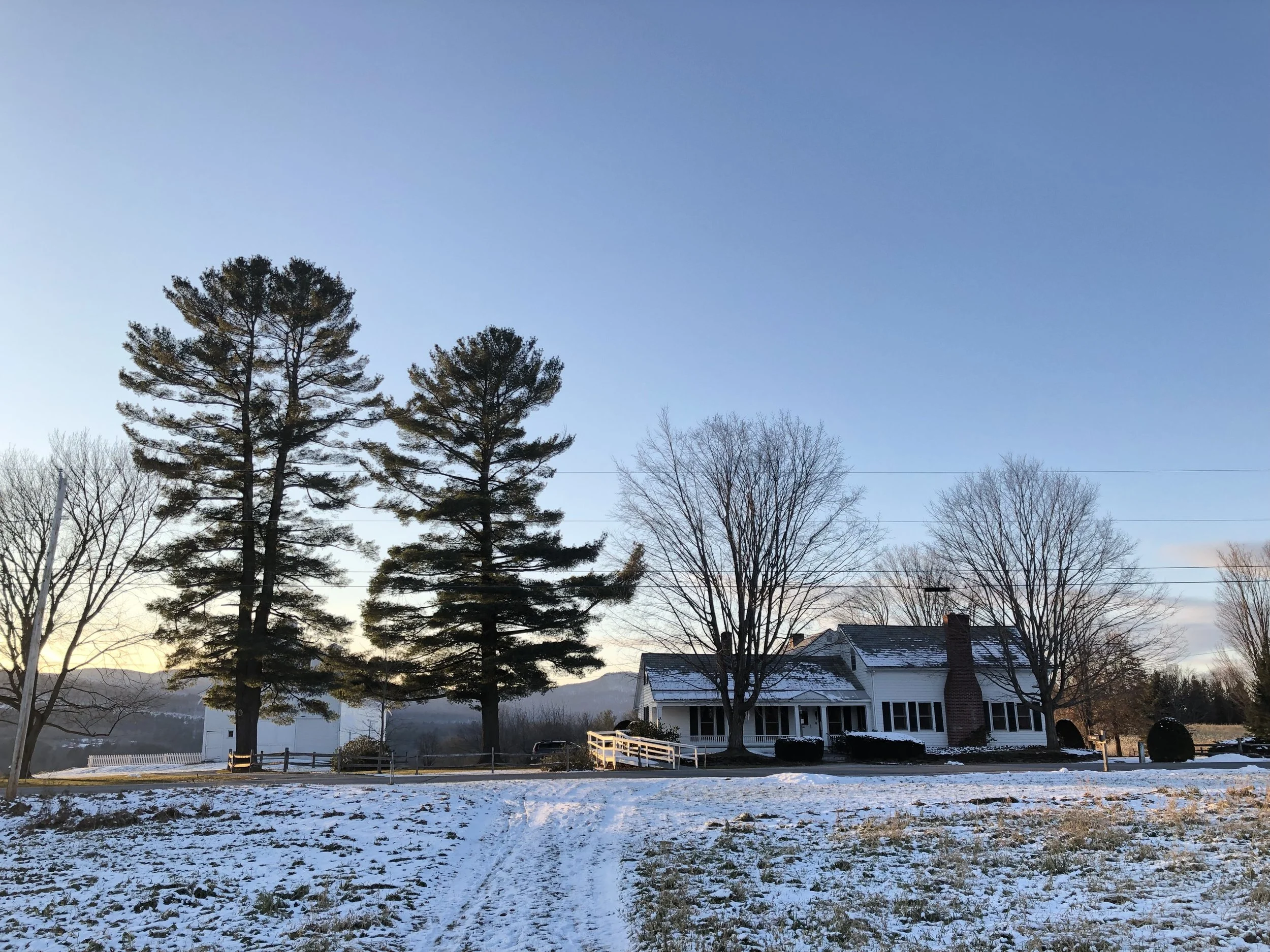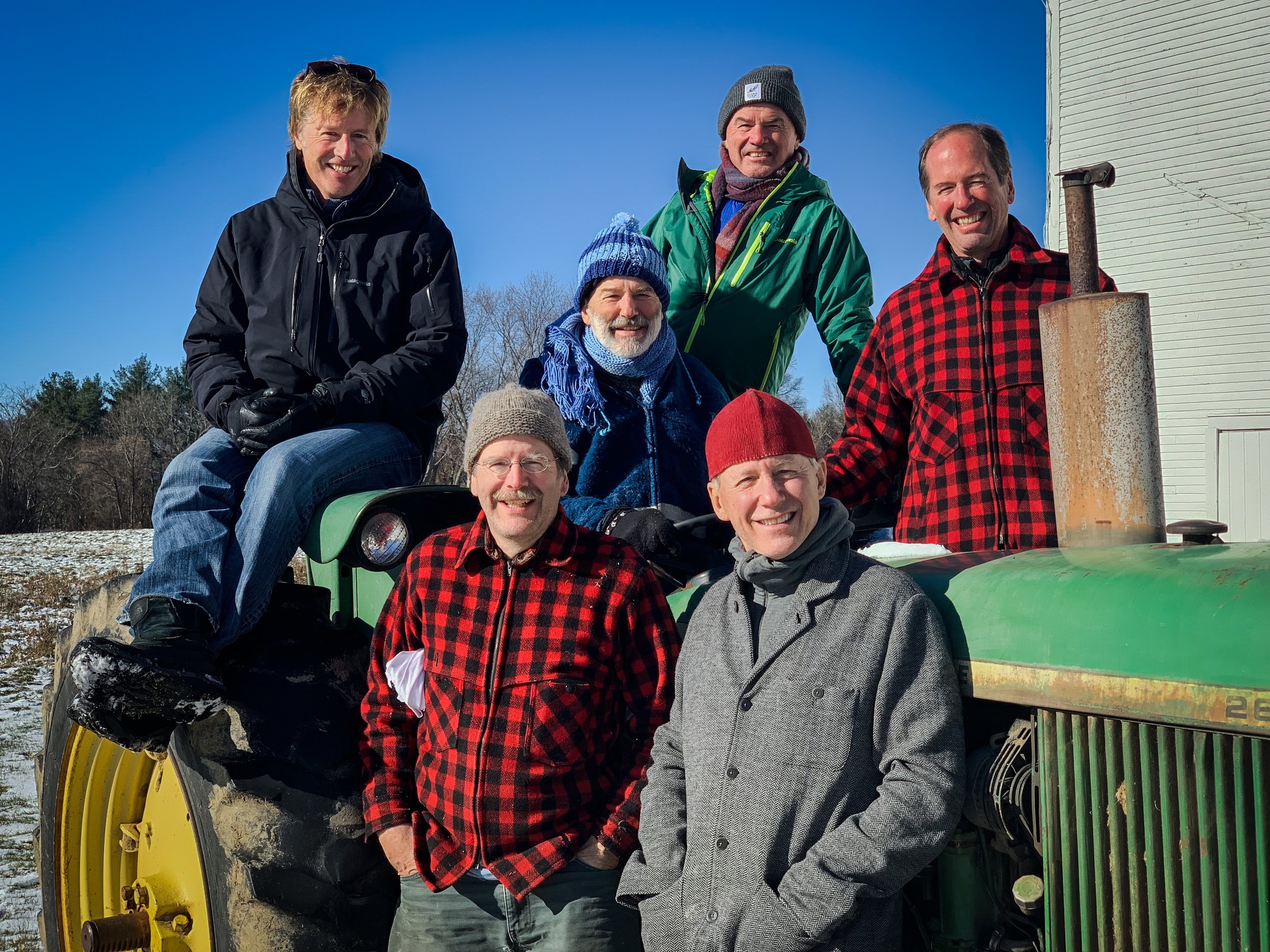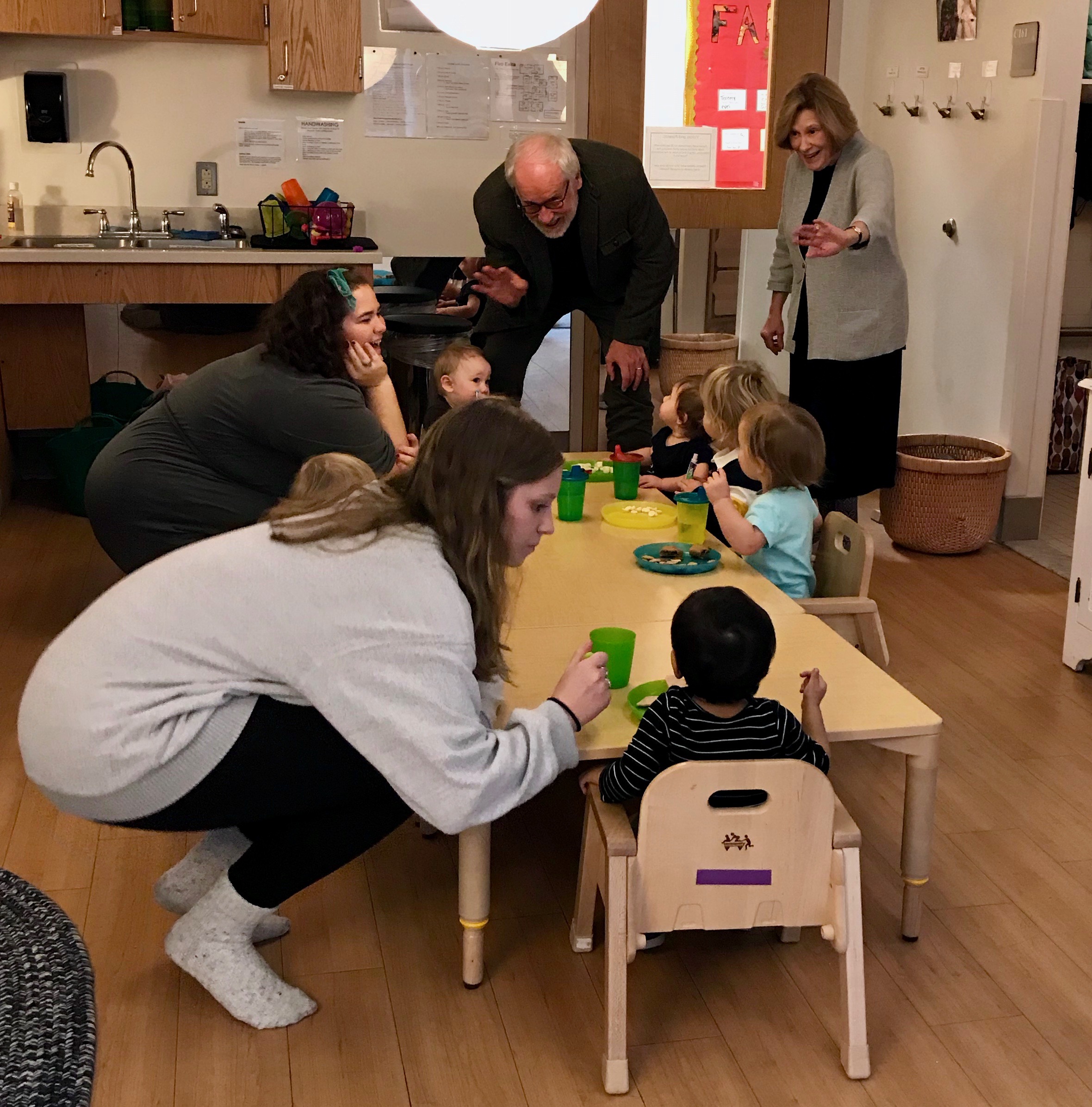This Thanksgiving holiday, we are with Ashley’s extended family…his five brothers, spouses, nieces and nephews and a few family friends. We are gathered at the farm in Vermont where Ashley grew up with his brothers and where eight generations of this family have lived. We are in two houses across the barnyard from one another with a classic white barn in between. To the west, we look out at the now snowy Taconic Range and, to the east, over the fields and hills. Our own sons and their families and are not here this Thanksgiving, so we miss them.
This is the first holiday without Ashley’s mother, who died last spring and we miss her. And yet, her presence and love is everywhere. Many of us have had some bumps and illnesses, injuries and challenges, like every family. Being together in a warm and honest way in this place sustains us.
One of the traditions that we have cultivated over the years is to have a family circle before the Thanksgiving meal. We used to stand in a circle and say briefly what we were thankful for. This tradition has evolved into more of a Quaker Meeting style sharing where we sit in the big room with a fire and speak about what really matters to each of us. It is a beautiful weaving of story, gratitude, struggle, sadness, kindness, support and love.
This November we are also waiting for the newest member of the family, due to be born to our son, Chris and wife, Leila any minute. This Thanksgiving we are grateful for our family circles, our friend circles, our educator circles, and the beauty of the earth where we all live.. Each enriches our life and makes us whole.
We love David Steindl-Rast’s view of gratefulness that he has written about in his books, and spoken about in a TED talk and also in this five minute youtube video that is beautiful and accessible. Be sure to watch it with family.
Happy Thanksgiving weekend to each of you. We send all of you our very best wishes for a beautiful holiday season.
Louise and Ashley







